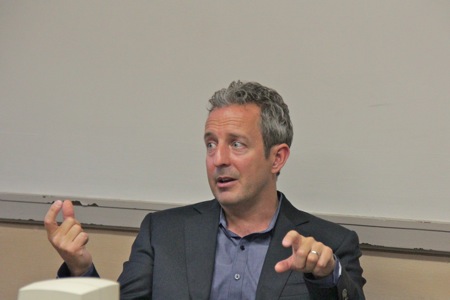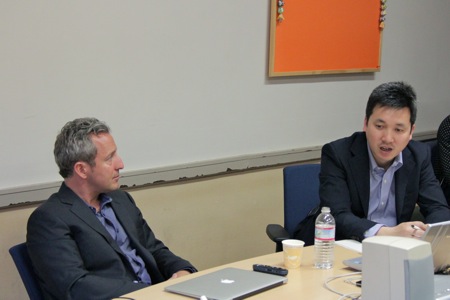[Report] Lecture by Prof. Edward Slingerland "Confucianism and Cognitive Science"
On May 17, 2013, Professor Edward Slingerland from University of British Columbia has given a talk at UTCP entitled “Confucianism and Cognitive Science: Dialogue Between the Sciences and Humanities”.

Professor Slingerland is a renowned and leading figure on early Chinese philosophy, ethics, cognitive science and so on. In the very beginning of his talk, Professor Slingerland made a criticism on Kantian ethics that “actions done ‘out of inclination’ (aus Neigung) rather than ‘out of duty’ (aus Pflicht). Following that, he extended his argument that the embodied cognition gives challenge to disembodied rationalism, which somewhat can be supported by the traditional Chinese ethics.
By giving a number of textual evidences from Mencius and Xunzi, Professor Slingerland argued that “Confucian ethics designed a model of moral education that draws upon but also reshapes our embodied habits and perceptions,” in which it can be supported by cognitive science. This is where a productive dialogue can be made between the sciences and humanities.

Followed by the very inspiring talk, a number of questions and comments were thrown from the floor. Why and how cognitive science can help or better explain virtue ethics? What exactly is the meaning of “habit” and how different is it with “duty” in the Kantian sense? What lessons does Confucian ethics and cognitive science offer to today’s world? Professor Slingerland reiterated that moral actions are relied on emotion or “gut reactions” rather than duty. Cognitive science, therefore, can give better explanation, and help bridge sciences and humanities up.
Report: Kevin Lam (University of Tokyo)






